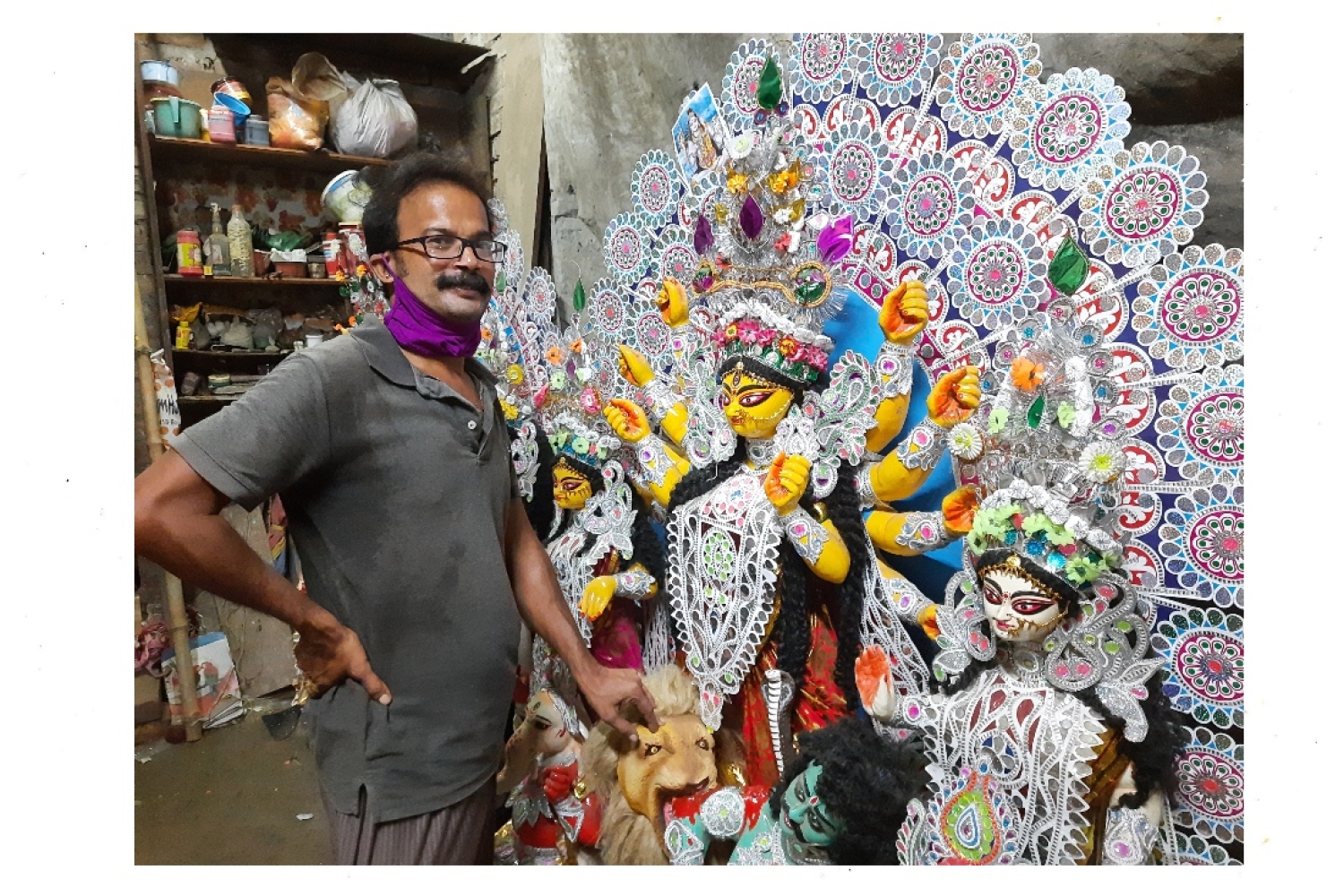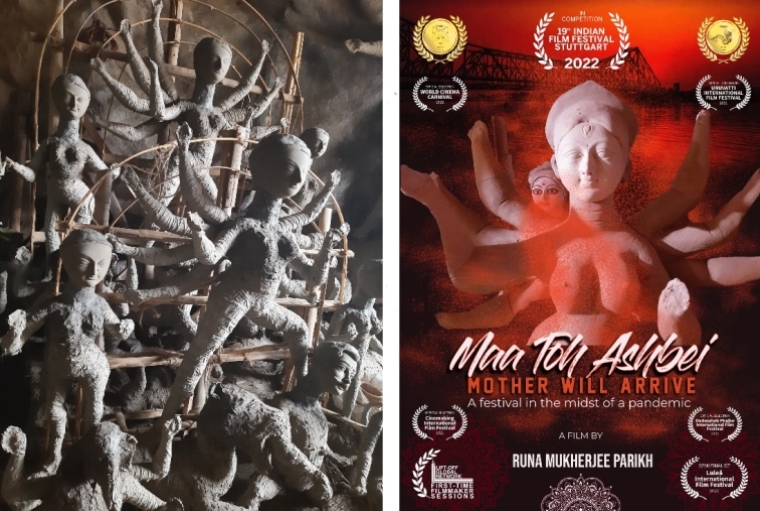

Runa Mukherjee Parikh is an independent documentary filmmaker and journalist, who has experienced Delhi, Ahmedabad, and Calcutta, closely at different stages in her life. As someone who enjoys the structured form of journalism immensely, the filmmaker has also developed a penchant for writing fiction over the years. She tells me, “After fifteen years of interviewing people and writing about them, making a documentary felt like a natural progression to me. The visual medium has been a great influence in my life and I wanted to put efforts into creating something visual this time.” Shot in 2020, the year the world stood still, her documentary titled, Mother Will Arrive, takes a close look at the work and lives of the kumor or idol makers of Kolkata. The pandemic, and the subsequent lockdowns and curfews, caused major upheavals around the world. For the informal sector and small business owners, it sounded the death knell in many cases. Runa’s documentary highlights these turbulent times faced by the famous idol makers of Kolkata, West Bengal.
We’re in conversation with Runa Mukherjee Parikh, whose film was also nominated for the German Star of India award at the 19th Indian Film Festival of Stuttgart.
What kind of narratives attract you?
I have written on culture, art, education, and gender for over a decade. I love to explore topics of human interest, the kind that have extraordinary written over their ordinary appearance. In 2017, I wrote a collection of short stories on new-age relationships, titled Your Truth, My Truth. The stories are about common folk living lives that are interesting, if you just observe. Being a journalist, and writing for organisations like Times of India and India Today, has helped me become a better student of life, as I have discovered everyone has a story to tell, and I like to listen.
What inspired Mother Will Arrive?
Throughout my childhood, every summer holiday would mean heading to Calcutta and taking in its many cultural delights. My parents instilled in me a great love for literature and history, and our family was consistently an integral part of the Durga Puja celebrations in Delhi’s Chittaranjan Park. For me, in particular, the biggest fascination of the festival of Durga Puja was watching the idol makers at work. The way they turned something as mundane as clay and soil into the divine form of the goddess always left me in awe. While most Bengalis enjoyed the four days of the puja, the excitement began right from when these artists got to work for me.
In 2020, when the whole world came to a standstill, there was a big question mark hovering over Indian festivals. I was staying in Calcutta with my parents at that time, and as autumn approached, I got curious about what the artisans were upto. Turns out, they were sitting idle without orders in their empty workshops. It was the first time ever I felt despair instead of excitement standing inside a potter’s workshop. So I visited them a few more times, and finally, decided to document their lives in that particularly brutal year.
What did your process for this look like?
My experience may have been very different from people making documentaries in the pre-covid era. It was a solitary affair — on most days, it would be me and my camera, quietly listening as the idol makers would speak their heart out. Most of them wouldn’t even remove their masks, and I would also not impose. I would study tutorials and other documentaries for hours to understand the treatment I wanted to give mine. After getting hours of footage, and having covered the actual festival, finding the right editor became a task, with the second wave hitting India.
So, I had found the time to go through every frame thoroughly and shortlist some of the shots while still looking for an editor. Finally, when I did get one, we had our work cut out for us. Between online meetings and a rare studio visit or two, I completed my documentary. What I found interesting about filmmaking is that there are so many factors that come into play that you do not even think of in advance. It’s a lot of thinking on your feet. I also wrote the script and the subtitles for it, so it was a complete learning experience.
What is it that you wish for the viewers to take away from this documentary?
Durga Puja is a huge phenomenon in West Bengal. A recent British Council report estimated the creative economy during the festival at 32,377 crore rupees. Last December, UNESCO declared Kolkata’s Durga Puja an intangible heritage of the world. These idol makers are an essential part of the festival’s fabric and are renowned for their work, many having won awards. So when I was shooting the documentary, I hoped to give some shape or definition to this whole new side of a festival I have grown up celebrating. I chose to tell the story in a year when the pandemic was raging. While there may exist works that capture this festival in its grandeur, Maa toh Ashbei might be the only one that has captured the despair and uncertainty of this particular time in history. It would do well for posterity.
So I’d want the viewers to watch the documentary and remember the lessons learned during the pandemic, of what we stand to lose if we don’t take corrective action. On a positive note, the audience will also see that no matter how dire the situation, 'maa toh ashbei' (the mother will arrive). Some hope always stays alive, and that is how humanity moves forward.
Finally, what's keeping you busy right now?
The documentary has had a great run in the festivals, having competed in the Indian Film Festival of Stuttgart along with gems like Writing with Fire. From being a part of NFDC’s Film Bazaar last year, to having its German, Australian, and now Crimean, premiere (at the 6th Yalta International Film Festival in October), the documentary has resonated with audiences and juries across the world. My work right now is to find a good distribution company that leads to an OTT release hopefully. Personally, I have started writing a script for a story I have had in mind for a long while. Script writing is a new skill I am hoping to hone in the coming year.

Text Unnati Saini
Date 29-09-2022